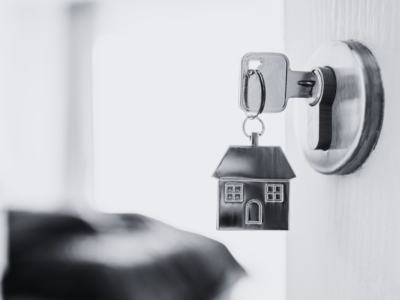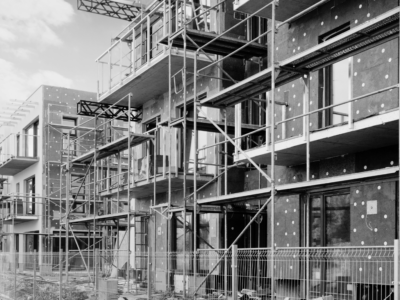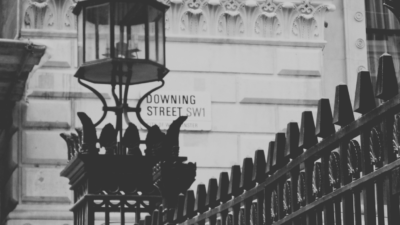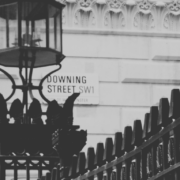As the Grenfell Tower Inquiry continues through its second phase of hearings examining the causes of the fire, leaseholders in unsafe homes can take little comfort in the Fire Safety Act 2021 made law last month.
In the midst of a crisis in building safety standards, defeat of the McPartland-Smith amendment in the House of Lords 242 votes to 153 which sought to restrict the passing on of remediation costs to leaseholders now makes leaseholders legally and financially liable for remediation to make their homes safe.
Despite Boris Johnson’s pledge that ‘no leaseholder should have to pay for the unaffordable costs of fixing safety defects that they didn’t cause’, leaseholders must potentially fork out up to £100,000 each to meet new requirements.
Exactly how much leaseholders will be expected to pay, or how they can secure funds to meet new legislative requirements, is only further frustrated by the new and frequently misleading EWS1 fire safety inspection requirements which has seen some leaseholders pay up to three times for duplicate forms in a single year.
So what are beleaguered flat owners to do now? For the small few high-rise buildings taller than 18 meters eligible for remediation the Building Safety Fund is a limited resource that fails to cover all the works required to make homes safe from fire risk including issues around compartmentation and fire door inspections that remain largely unaddressed.
For the remainder, the Government’s promised loan scheme for people living in blocks below six storeys has so far failed to materialise and the Bank of England has raised fears that the cladding scandal is now affecting property values so badly that it could tip the UK into another financial crisis.
The Ministry of Housing, Communities and Local Government suggests that the forthcoming loan scheme is the right vehicle for dealing with remediation costs, yet this would form part of the delegated legislation enabled by the Building Safety Act which could take up to two years to pass into law.
Key policymakers have also failed to address criticisms around the structure of the loan scheme itself, which could require leaseholders to pay up to 50 a month themselves to resolve fire safety issues that were not of their own making.
No one is holding their breath in the hope that this is on the top of the Government’s agenda.
This situation cannot possibly be allowed to continue. Each day leaseholders are facing unaffordable bills, rapidly escalating insurance premiums and unbearable stress associated with EWS1 maintenance costs and regular fire safety inspections.
Something needs to happen and fast. But at the moment it is hard to see where the help that leaseholders so badly need might come from.
At Ringley, we are working hard to help residents where we can. There are all kinds of problems around EWS1 forms and the Governments Building Safety Fund.
But we want our leaseholders to know that we will continue to support you wherever possible to ensure your home is safe and brought up to standard.
Author: Mary-Anne Bowring, Group Managing Director of Ringley

























Does anyone remember the 1966 Building Regulations and “unprotected areas”. To reduce the risk of fire spread? The Government prepare and publish the Building Regulations and have allowed the Grenfell situation with their relaxation of the earlier regs. My personal view is that under the earlier building regs this disaster is unlikely to have happened as fire spread would have been restricted. How kind Boris is to say “that ‘no leaseholder should have to pay for the unaffordable costs of fixing safety defects that they didn’t cause’, Why should leaseholders pay at all for the failure of others, why shoud freeholders meet the burden or specifiers if they were misled??
Is the next problem going to be spread of fire allowed by plastic windows melting away to allow external flames to gain access to the interior of buildings?
Why are the total costs not being passed onto the manufactures of the materials who seem to have mis-lead specifiers?
These are of course personal views.
100% agree!
The manufacturer and marketing of these materials who understood and specified the application of their products MUST be held to account firstly. These companies must pay for all corrections required, even setting up dedicated businesses to implement the corrections.
Then if it is found that Specifiers or Project Delivery teams had knowledge, they too should held to account in much the same way.
Some Regulated organisation should be in control of the ews1 process and also registration so that quality and integrity of this form is robust. Anyone purchasing a property should be able to read the register to confirm the investigation has been performed and see if there were any shortcomings found. Even an overall Authority might be required to ensure that all properties are corrected per the EWS1 form.
After all, these were the ‘professionals’ that brought about this issue.
No lease which I have ever seen allows a freeholder to carry out work which is detrimental to the property – and none allows them to do that and then to charge the leaseholders. Leases allow the freeholder to carry out repairs and may allow freeholders to carry out improvements. Grenfell type cladding is not a repair and it is not an improvement and therefore is not allowed under the lease. Leaseholders must resist paying for cladding to be put up or taken down. If the Govt does not do something to resolve the present situation then leaseholders should get together and put up candidates in the next general election in seats with low majorities or lots of high rise flats. they might not get elected but it will scare the govt and MPs.